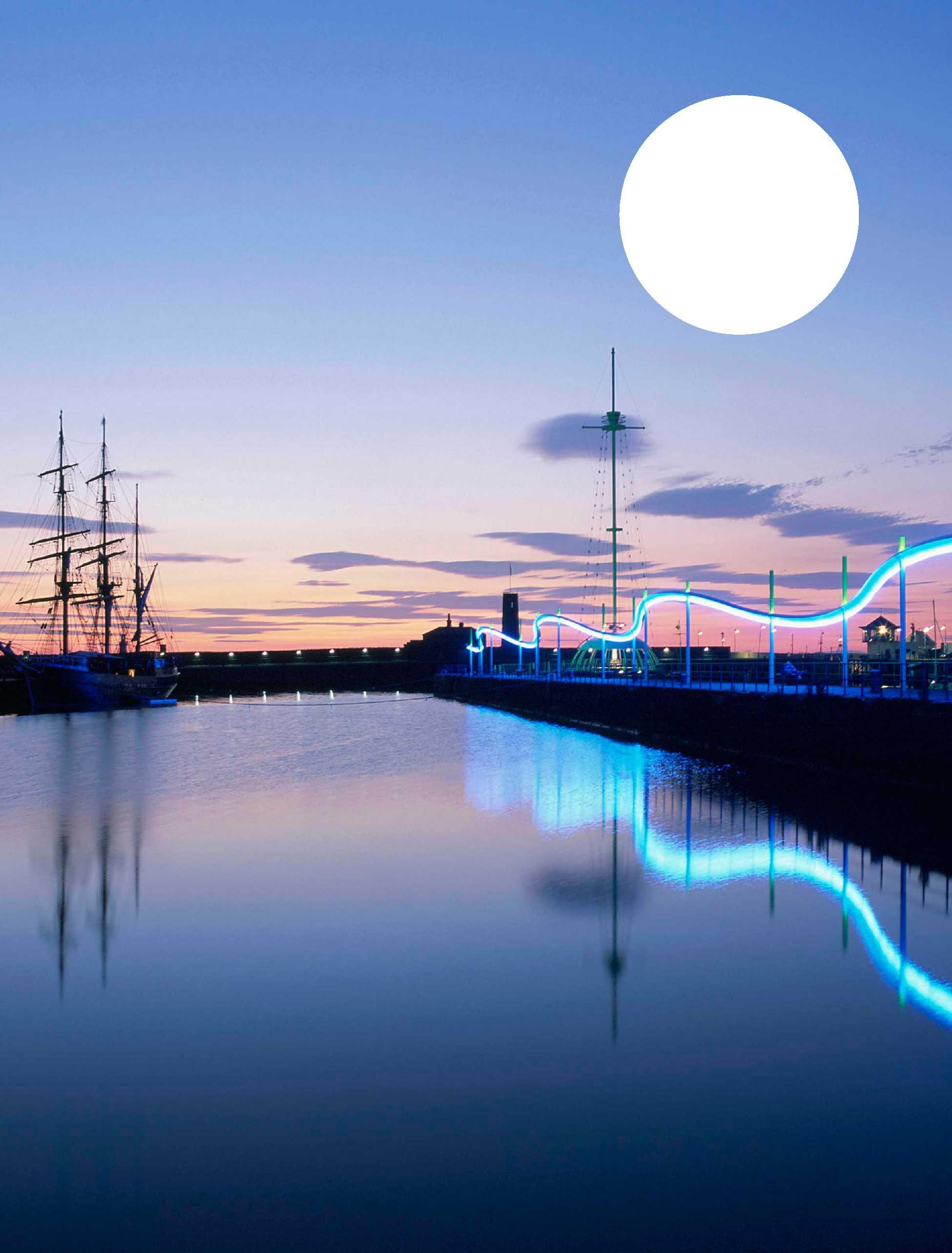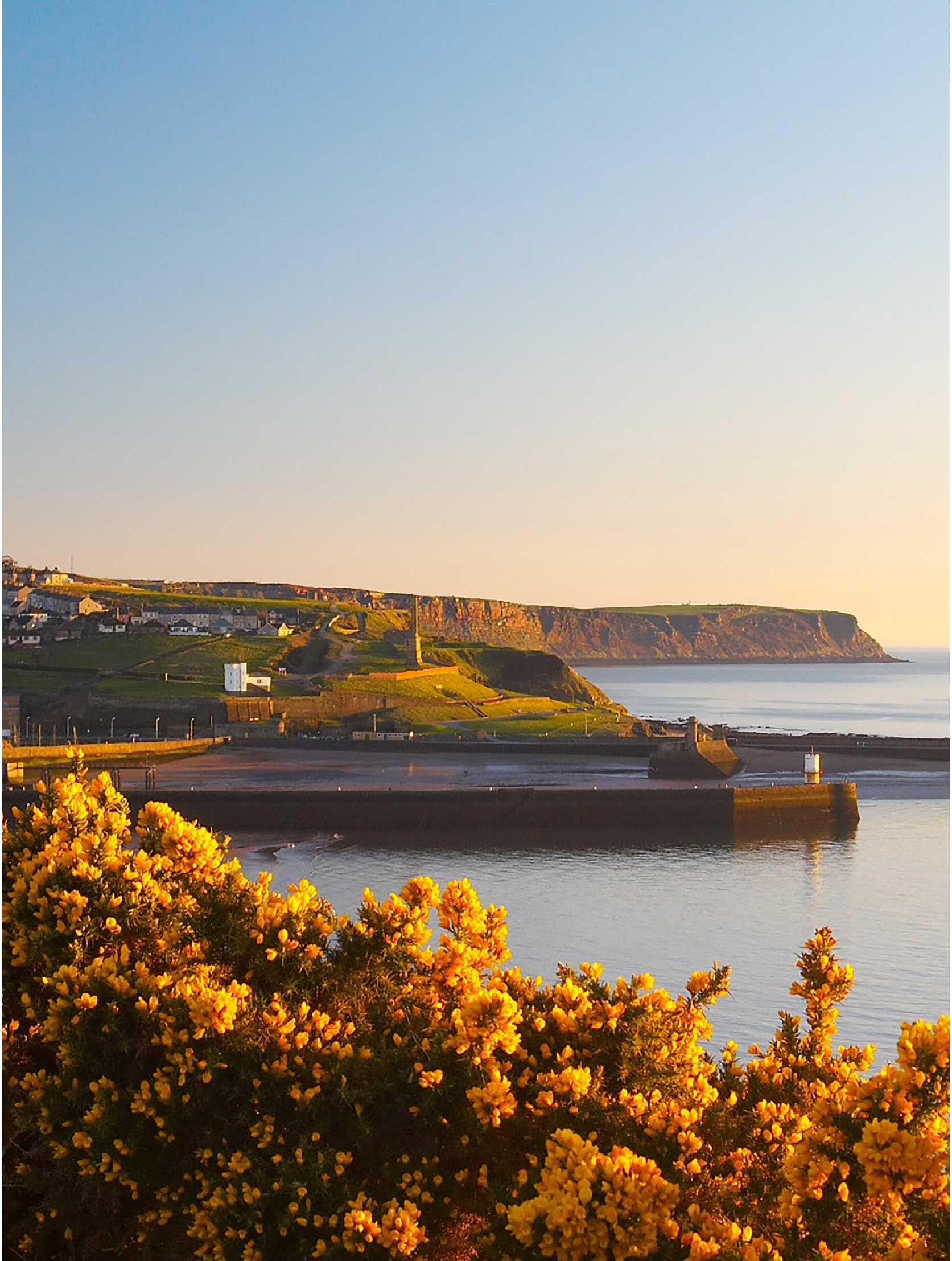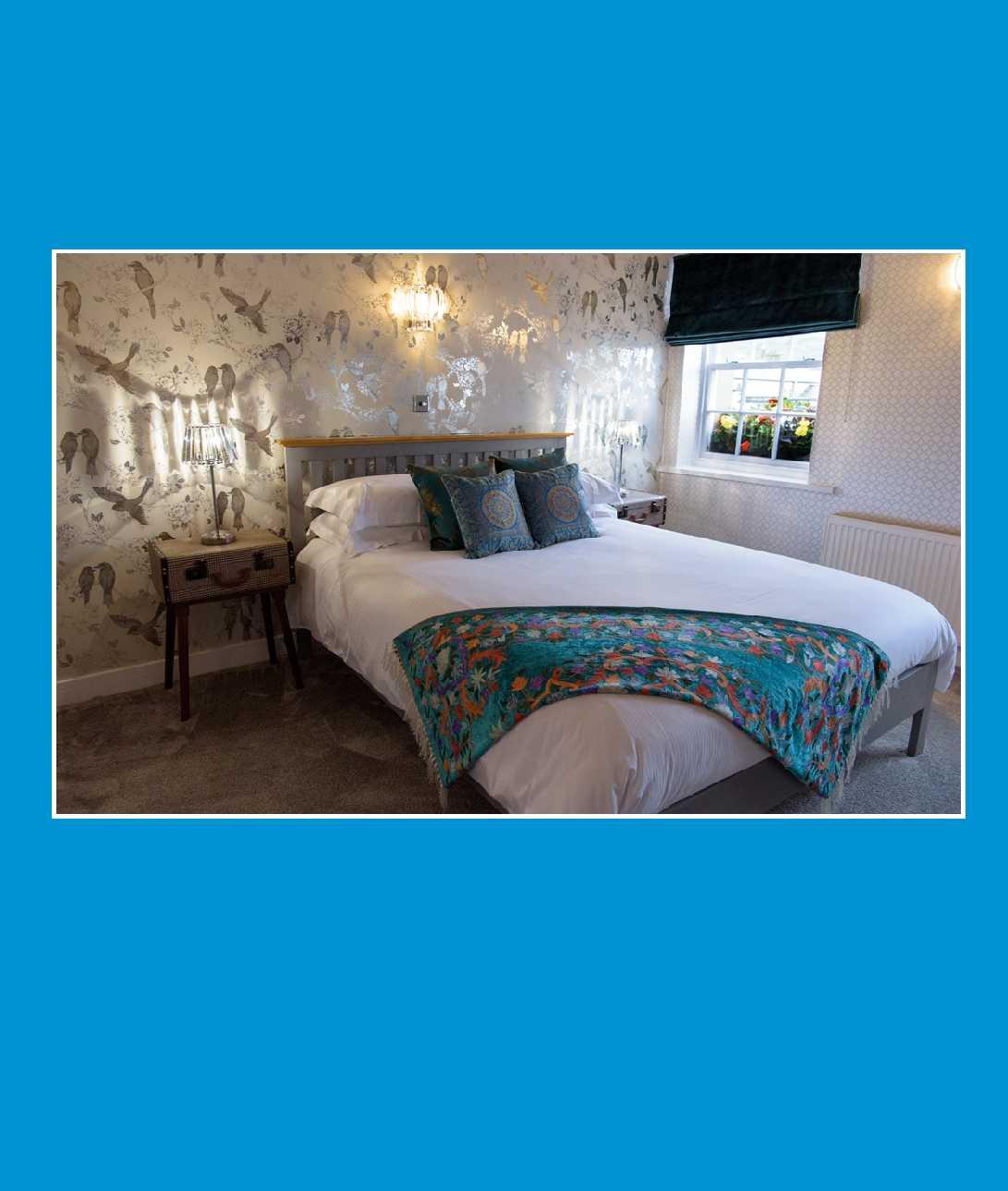
5 minute read
Welsh gem with family appeal
MOVE TO WHITEHAVEN
A low-profile spot on the West Cumbrian coast, the old port of Whitehaven is re-emerging as a Georgian seaside gem at the foot of the Lake District, writes Lesley Gillilan
Those who have never heard of Whitehaven will be surprised to learn that this small far-flung Cumbrian town was once one of the busiest ports in England – in fact, by the late 18th century, only London was busier. The money made from shipping local coal – plus salt, sugar and tobacco – is still evident now in the neat rows of handsome Georgian houses which form the core of the harbour town.
In its original form, it was a model of Georgian new town planning – it is said that New York’s grid system was based on Whitehaven’s. And if you dream of buying a Georgian townhouse with sash windows, cornices and a grand entrance, here’s where you’ll find one for a song.
The town is a little out of the way, but it is also bustling with life: there are two museums (one dedicated to rum – another 18th century import), as well as a traditional high street and more than 250 listed buildings. A local habit of painting townhouses in a palette of pastel colours adds to the charm of its streets.
Industrial decline has put the town through tough times, but it has gradually reinvented itself as a tourist attraction, underpinned by the Millennium-linked redevelopment of the old port – now one of the finest marinas on the northwest coast. In tourismspeak, they call it the ‘Georgian Gem of the North’, or the Gateway to the Lakes. Whitehaven is on the doorstep of the Lake District – the UK’s latest World Heritage site, awarded UNESCO status in 2017. On a clear day, you can see Ennerdale Fells or, in the seaward direction, across the Solway Firth to the Isle of Man.
With its wild coastline, high cliffs, rugged stone harbour and mining history, it has something in common with Cornwall, except that house prices here are considerably lower – a factor which tends to attract a younger generation to this old-fashioned town.
A ‘proper Cumbrian’, 33-yearold Lara Schwab has been in Whitehaven all her life and has never felt the need to leave. Her shop, Little Whims (quirky, vintage and hand-made gifts), is among a new breed of independent shops, restaurants and wine bars that have sprung up in the town in more recent years. It’s in Market Place – a once run-down Georgian shopping street that has benefited from a Lottery-funded Townscape Heritage regeneration scheme. ‘There’s so much history here,’ says Lara. ‘And so much potential.’
WHERE TO BUY
For the classic Georgian terraces that define Whitehaven’s centre, look at the tight-knit grid of streets between High Street, Scotch Street and the harbour. Church Street has some particularly good examples but, further from the seafront, there are grander period townhouses on Foxhouses Road and Inkerman Terrace. For sea views, the best bet is a modern apartment in harbour development Pears House; or head for the nearby village of St Bees – five miles to the south – which has its own railway station, as well as a sandy beach and a fine collection of affordable period properties.
HOW MUCH?
Premium properties will go for higher prices, but they rarely top £600,000 – around £440,000£500,000 will buy a large,

Whitehaven Harbour was once one of the busiest ports in England
WHITEHAVEN: £143,491ST BEES: £236,026CUMBRIA: £204,203UK: £309,500 CAN YOU AFFORD IT? AVERAGE ASKING PRICES: [MAY 2019]. SOURCE: ZOOPLA (ZOOPLA.CO.UK).

prices here are CONSIDERABLY LOWER’

detached house with a plot of land. But with prices less than half the national average, you can pay a lot less: four or five-bedroom Georgian townhouses sell for between £150,000-£300,000; smaller period properties are even cheaper (where else can you buy a Grade II-listed Georgian terrace for around £115,000?). The area is popular with second-home buyers, but it’s a slow market and price reductions are common.
TIME OUT

Whitehaven’s own sand-andpebble beach is more popular with anglers than sun-seekers, but there is a gorgeous stretch of sand at Seacote, south of St Bees Head Heritage Coast and RSPB nature reserve – which can be reached on foot along an exhilarating seven miles of cliff path. For keen cyclists, Whitehaven is the gateway to the classic C2C coast-to-coast cycle route that runs across the Pennines to Tynemouth. Sailing and kayaking are popular, the Rosehill Theatre provides quality entertainment, and there are some good places to eat – try Zest or Anna’s (both on the harbour) or Arrighi’s (for fresh Whitehaven seafood). There are local golf courses (Whitehaven and St Bees) and the Lake District National Park is also within easy reach (Ennerdale Water is less than an hour away). For more information visit golakes.co.uk.

TRAVEL LINKS
This is not a destination for fastlane city commuters; the journey from London by train takes four or five hours, changing at Carlisle (an hour to the north) before heading south along the scenic route to stations at Whitehaven, Corkickle and Parton. The town is remote even within Cumbria: Barrow-onFurness is an hour-and-a-half away by car; Grange-over-Sands takes two hours; and you are an hour from Lake Windermere. The closest airport is Newcastle (a two-hour drive).
SCHOOLS
Whitehaven Academy is rated ‘Inadequate’ by Ofsted, but St Benedict’s Catholic High is ‘Good’.
REALITY CHECK
If the close proximity of Sellafield nuclear reprocessing plant is a turn-off, then it’s worth noting that the power station at Windscale is being decommissioned, plus Sellafield (10 miles to the south) is a major local employer – around 10,000 people in all. Locals seem more concerned about the lack of parking in Whitehaven town centre.
COMING UP
Whitehaven has benefited from Britain’s Energy Coast Masterplan, a £2bn project launched in 2008 to help create 16 million new jobs in energy and tourism. And 2018 saw plans to develop the town’s waterfront in a £55m regeneration scheme to include hotel and office space by 2021.
PAY A VISIT
Georgian House Hotel (01946 696611, georgianhousewhitehaven.co.uk).
In the thick of Georgian Whitehaven close to the harbour marina, this Grade II-listed hotel dates from the 18th century, but its snazzy bedrooms are thoroughly modern (metallic wallpapers and velvety beds, as well as double-ended baths in ultra-contemporary bathrooms). Breakfast (and cocktails) are served in the hotel’s informal restaurant. B&B from £125 per night.







